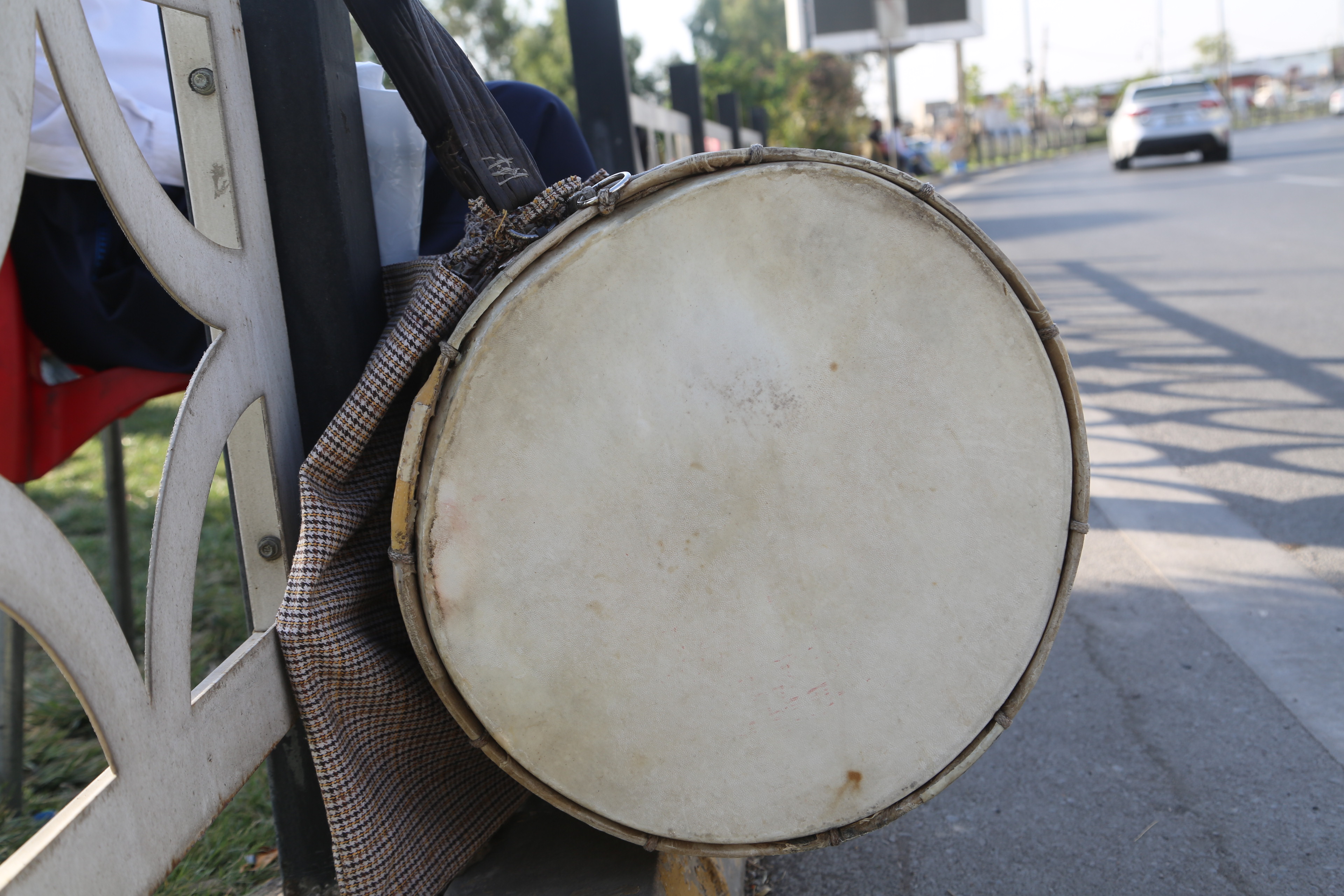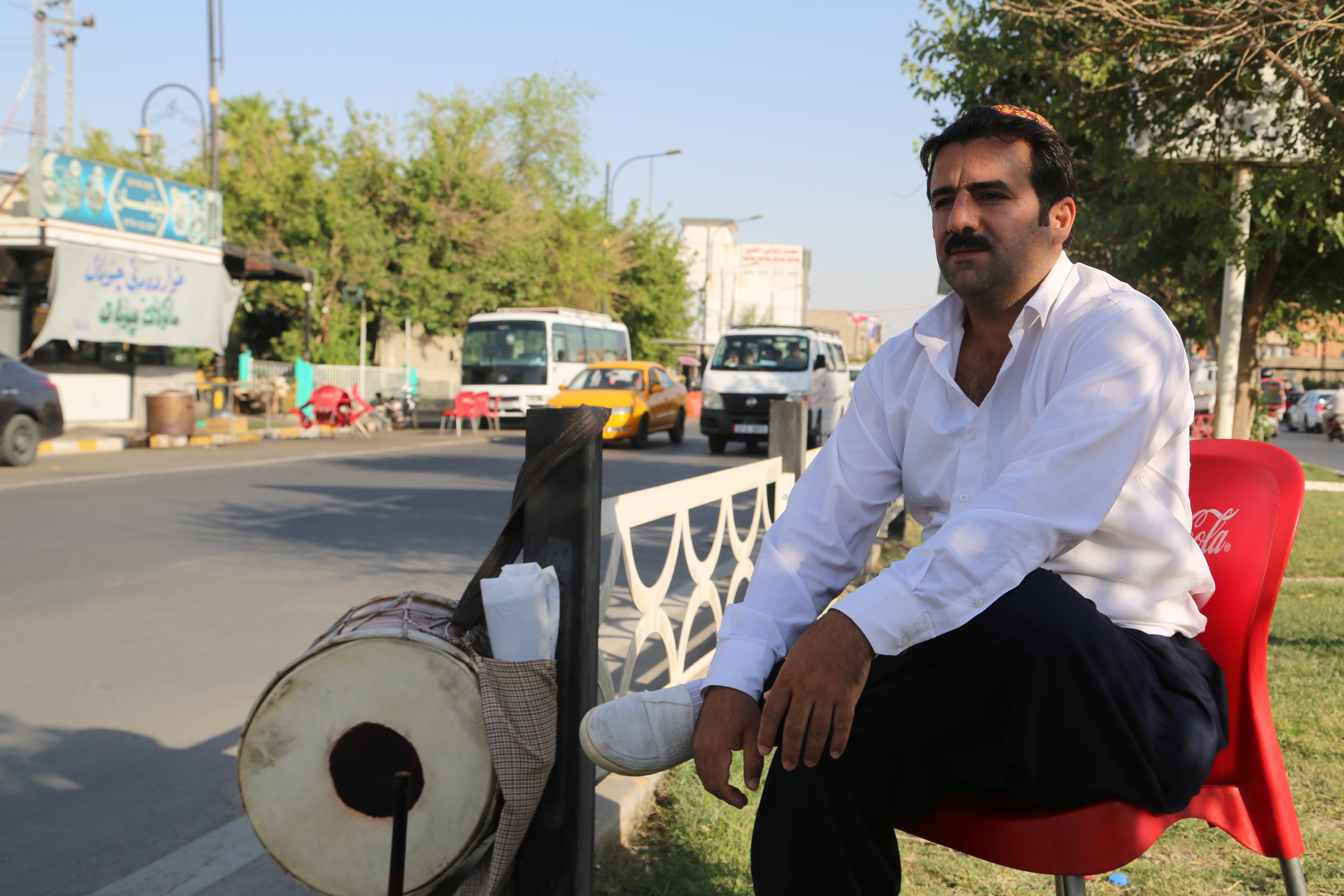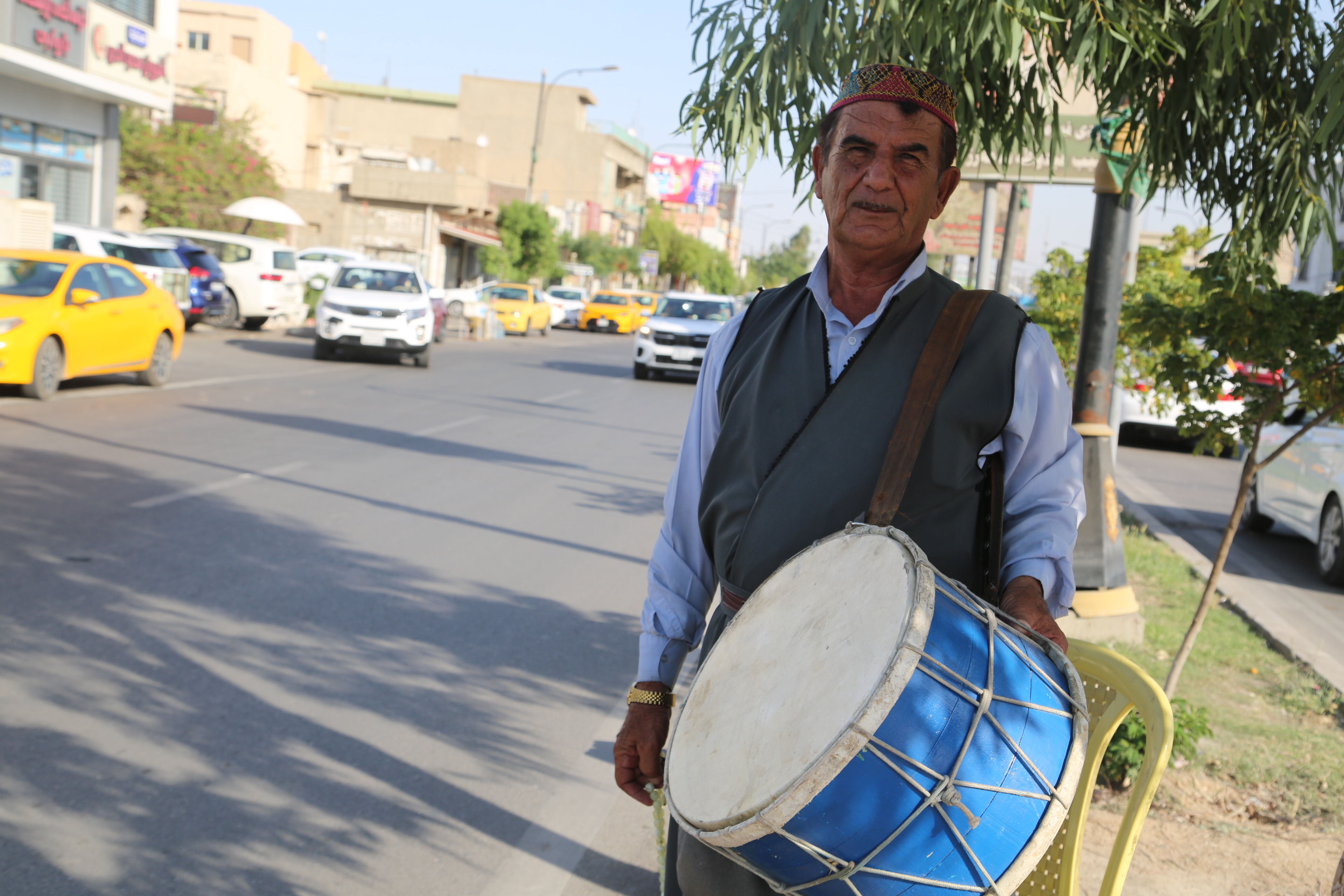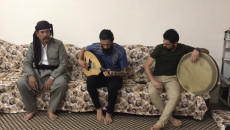"We have been playing the dahol (drums -table) and zurna (double reed wind instrument) for all Kurdish components, for generations. There are no ethnic differences in art and artistic taste,” said Nouraddin Daouda.
“Everyone is happy to listen to the dahol and zurna, and this is what makes them forget the differences." This is the secret behind the continued sound and reputation of the Daoudiya in Kirkuk.
Nouraddin Daouda is the brother of the famous Kurdish folk artist Salah Daouda, who dedicated decades to serving Kurdish folk art in Kirkuk. This legacy is still preserved by his sons and grandsons.
When passing through the Shorjah Kurdish neighborhood in Kirkuk, you will likely encounter a group of brown-skinned men wearing Kurdish costumes, carrying a dahol on their shoulders and holding a zurna, resembling a flute. Those are the sons of the Daouda tribe.

The Daouda play Dahol and Zurna at the streets of Kirkuk to preserve folk art and make their living. KirkukNow
The Dawooda are an ancient Kurdish tribe with roots extending to the Garmian region, particularly Kirkuk.
Historical sources indicate that in the 1920s, the Dawooda tribe consisted of approximately 4,000 families spread across Kirkuk, Daquq, Khanaqin, Kifri, and Kalar. Apart from agriculture and livestock breeding, this tribe was renowned for its artistic passion, interest in traditional maqams, and proficiency in playing wind and percussion musical instruments common in the region.
Instruments such as the dahol, zurna, shimshal, balaban, and juzala (wind instruments) are integral to the life of this tribe, with many members gaining fame for their musical prowess.
Salah Daouda was adept at folk songs and playing the balaban, shimshal, and zurna. His music cassettes were widely distributed throughout Kurdistan.
Songs like "Amoza gian (Dear Cousin)," "Habibi Khan (Beloved Lady)," and "Khanzadeh Khan (Esteemed Lady)" were on everyone's lips.
He passed away in 2009, but his brothers, sons, and grandchildren have upheld his artistic legacy.

Abbas Daouda, the eldest son of Salah Daouda. KirkukNow
The northern oil-rich city of Kirkuk, located 238 kilometers north of Baghdad, is an ethnically mixed province with 1.77 million Kurds, Sunni and Shiite Arabs, and Turkmen. It has long been at the center of disputed territories between Baghdad and Erbil.
"Our tribe boasts many folk artists, but our primary art lies in playing dahol and zurna," said Abbas Daouda, the eldest son of Salah Daouda.
Abbas and his brothers have chosen to follow in their father's footsteps, ensuring the preservation of this art for future generations.
In addition to the dahol and the zurna, the Daouda tribe stands out from other tribes and clans in the region due to their traditional costume.
Subhi Daouda, Salah's brother, mentioned, "The costume we wear is known as 'Kawa' and is unique to the Daouda region. Our hats feature distinct embroidery methods and are currently crafted in Tuz Khurmatu and Kifri," Subhi added.
"This costume serves as an identity for our tribe, and we take pride in wearing it, just as we take pride in preserving our art.”






